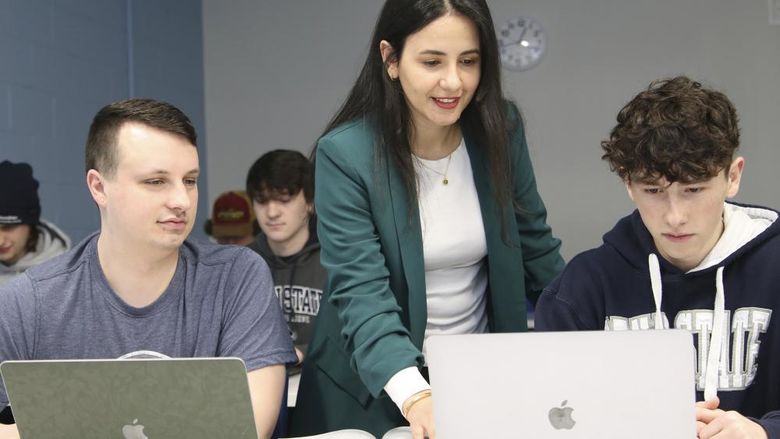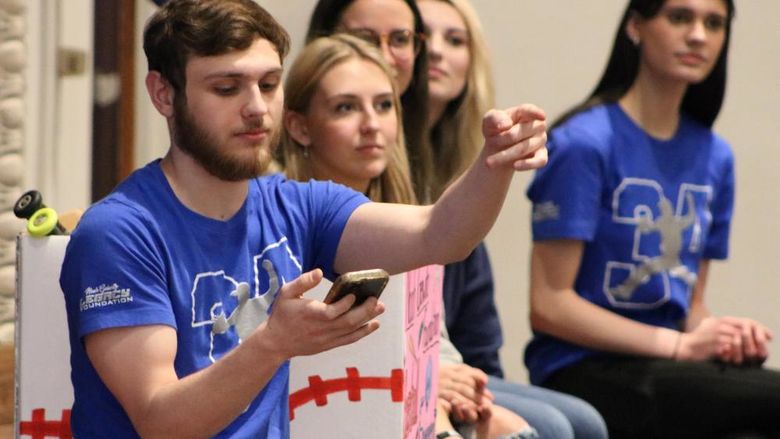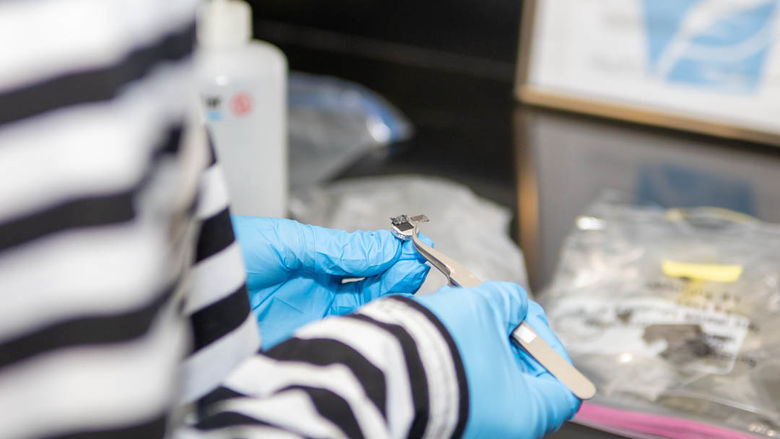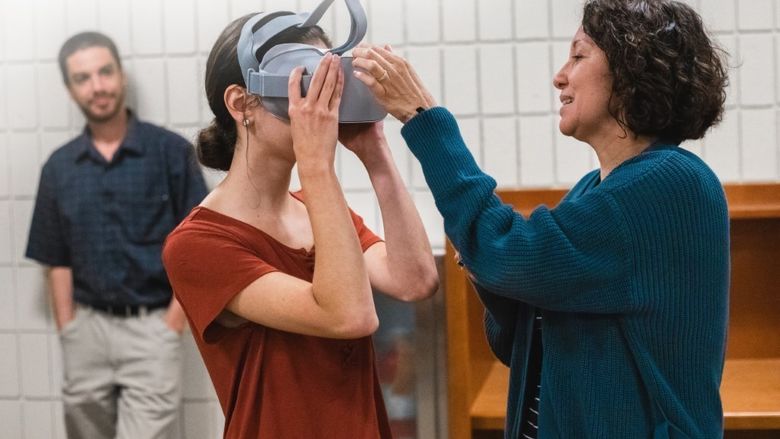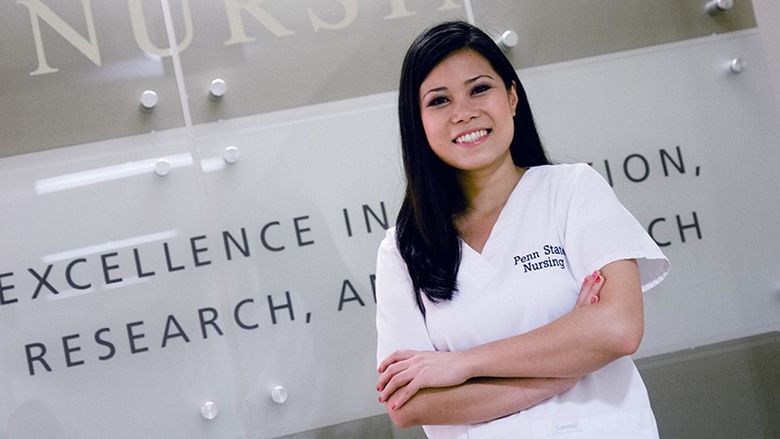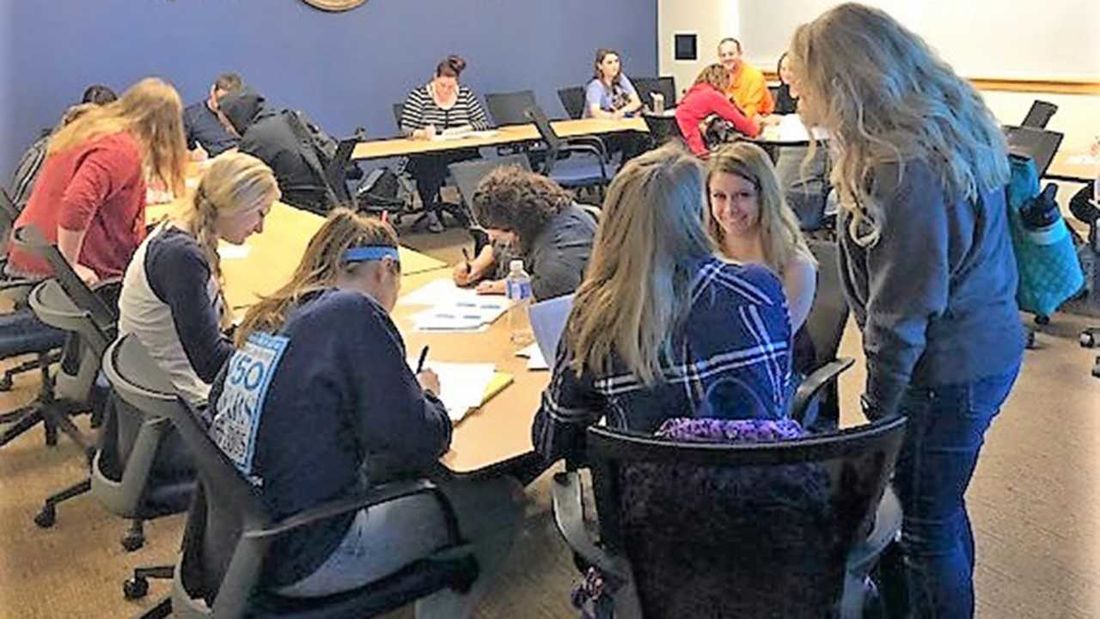
Penn State Shenango nursing and human development and family studies students discuss ethics of genetic selection during their interprofessional collaboration class this fall.
Innovative pedagogy, interdisciplinary cooperation, and an awareness of the changing dynamics of working in the healthcare field, were the impetus behind two Penn State Shenango faculty members in nursing and human development and family studies (HDFS) teaming up to create an interprofessional collaboration between their academic disciplines.
Over the last year, Assistant Teaching Professor Maureen Dunn and Instructor in HDFS Roxanne Atterholt, have been working together to share expertise between their nursing and HDFS students. Using classroom technology and video instruction to foster student engagement, their goal has been to help students better understand and apply the material covered in both academic fields. This initial collaboration allowed nursing and HDFS students to jointly examine the ethics of conceiving a child for the purpose of assisting the treatment of a sibling with cancer, using lessons based on the film, "My Sister’s Keeper."
“In the spring of 2017, I read a journal article titled, ‘My Sister’s Keeper: An Innovative Interprofessional Ethics Teaching and Learning Strategy for Nursing and Social Work Students,’ which really piqued my interest,” said Dunn. “We have been hearing and learning so much about interprofessional education that I decided to reach out to Roxanne, who teaches the upper level classes of our HDFS program, to see if she was interested in our two groups of students collaborating on a classroom project.”
Since 2009, various health profession associations have been working together to promote practical interprofessional learning experiences to help prepare future professionals for enhanced team-based care of patients. These teams emphasize the core competencies for each field, e.g. values and ethics, roles and responsibilities, interprofessional communication, and teams and teamwork.
To further their specific venture, Dunn and Atterholt attended a two-day workshop on inter-professional education at the Hershey Medical Center last October. During the workshop, they learned how to advance their project even further—by identifying challenges, writing their learning objectives, and developing assessment measures.
“It was an excellent workshop,” said Atterholt. “While we were there, we saw many other Penn State teams who were also developing new initiatives for students from various disciplines. We were also able to see the fine work that the Interprofessional Education Collaborative [IPEC] is doing to support academic institutions across the country in preparing future health professionals to enter the workforce ready for interprofessional collaborative practice.”
This fall, Dunn’s Nursing 465 course, Health Concepts for Adults with Complex Health Care Needs, and Atterholt’s HDFS 418 course, Family Relationships, came together for a combined class on interprofessional collaboration with a focus on ethics. First, the video highlighted the ethical dilemmas and strained family dynamics that occur when a child is conceived using pre-implantation genetic selection to assist with the cancer treatment of an older sibling. Then, students were guided through a discussion on ethics of genetic selection as well as personal and professional values.
Finally, the students were assigned readings and an assignment regarding the ethics of a “savior sibling,” as well as other IPEC concepts. They also took part in an online discussion to explain the ethical dilemma portrayed during the film, and finally, participated in a joint interdisciplinary debriefing meeting where they reflected on IPEC core competencies, ethical dilemmas, and discipline codes of ethics.
Student response to the collaboration has been very positive. “This IPEC collaboration is most definitely conducive to a productive education platform, and Dr. Dunn and Ms. Atterholt did an excellent job in conveying important ethical matters involving varied areas of discipline,” said Ciara Gee, HDFS student.
Mackenzie Stainbrook, an RN to BSN student, added, “The interprofessional collaboration activity was a unique experience. Getting together and sharing ideas, discussing ethics, and hearing different opinions is important. Listening to how HDFS students look at situations versus how my background in nursing influences my views was very interesting.”
Dunn and Atterholt are continuing to explore other forms of collaborative work with their colleagues and are planning to present their project at professional workshops and conferences.
